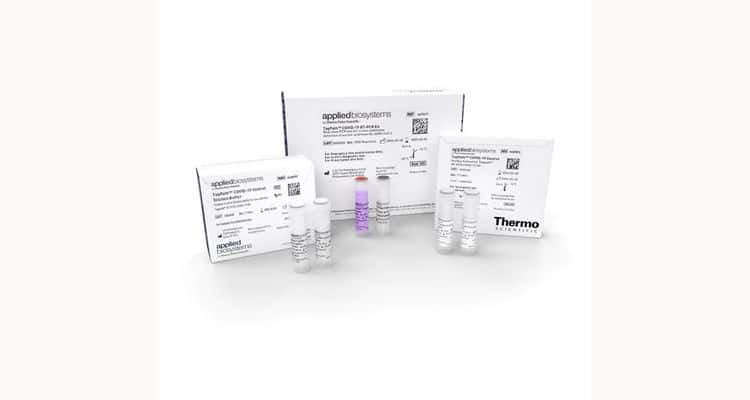Thermo Fisher Scientific’s TaqPath COVID-19 tests can detect the presence of Omicron variant in SARS-CoV-2 samples
The TaqPath COVID-19 assays detect SARS-CoV-2 infections by identifying the presence of three gene targets from the orf1a/b, S, and N regions of the virus. While the S gene target in the test is impacted in the presence of Omicron variant mutations, the orf1a/b and N gene targets in the TaqPath COVID-19 tests have been determined to not be impacted by any of the mutations
Thermo Fisher Scientific has confirmed that its TaqPath COVID-19 Combo kit and TaqPath COVID-19 CE-IVD RT-PCR kit can accurately detect the presence of the new Omicron variant in SARS-CoV-2 samples. The test works on the primer-probe detection method and is not impacted by the emerging B.1.1.529, or Omicron variant.
The World Health Organization (WHO) classified the Omicron variant as a SARS-CoV-2 “variant of concern” with more than 30 mutations in the spike protein alone. This variant has caused renewed restriction across countries and research to examine the variant’s impact on the efficacy of existing vaccines and tests.
The TaqPath COVID-19 assays detect SARS-CoV-2 infections by identifying the presence of three gene targets from the orf1a/b, S, and N regions of the virus. While the S gene target in the test is impacted in the presence of Omicron variant mutations, the orf1a/b and N gene targets in the TaqPath COVID-19 tests have been determined to not be impacted by any of the mutations.
Amit Chopra, Managing Director India and South Asia, Thermo Fisher Scientific said, “Thermo Fisher is committed to supporting the world’s pandemic response by developing innovative, adaptive and resilient testing solutions. Our TaqPath Assays are developed with additional built-in checks to ensure that clinicians, researchers and public health officials have access to effective tools to accurately detect for mutations as the virus continues to evolve.”
The Omicron variant has been found to include the 69-70del mutation of the S gene, first identified as a mutation in the Alpha variant. This mutation causes a dropout of the S-gene target in results from the TaqPath test, which could indicate to clinicians and researchers a possible Omicron variant infection. Confirmation must then be performed by sequencing the sample.
- Advertisement -


